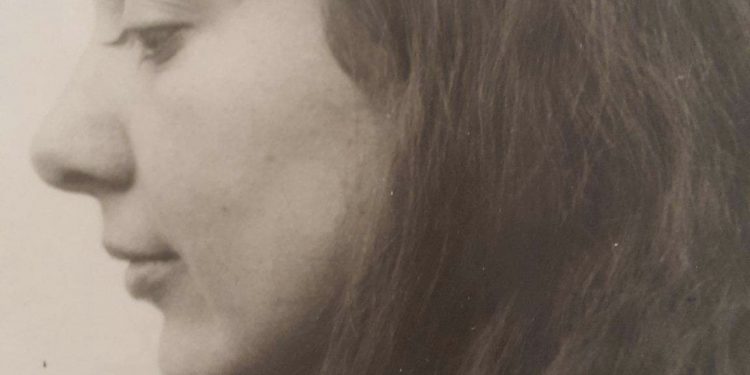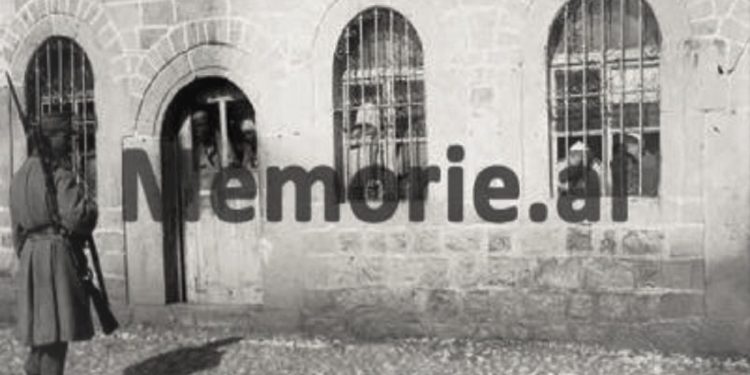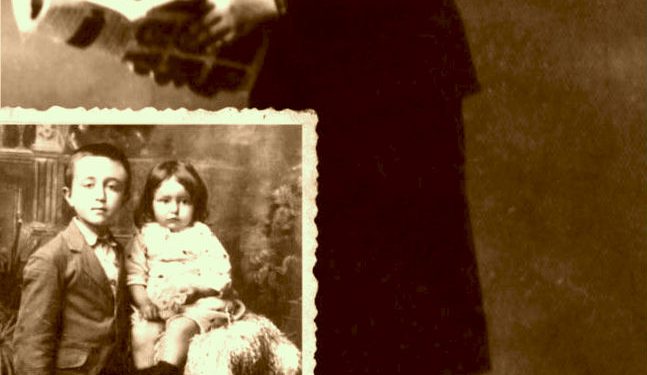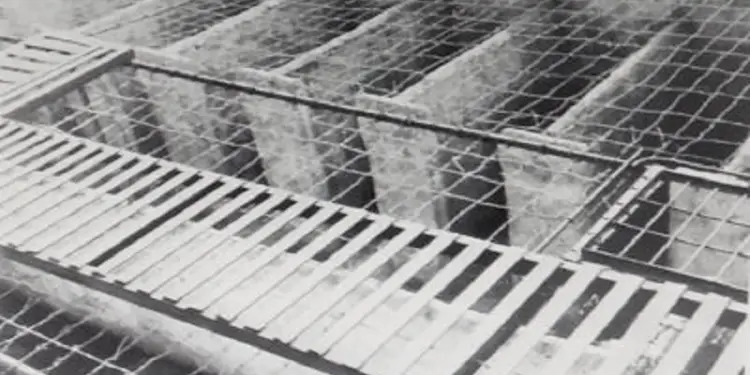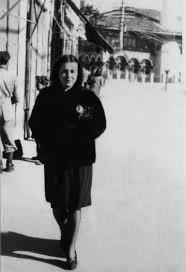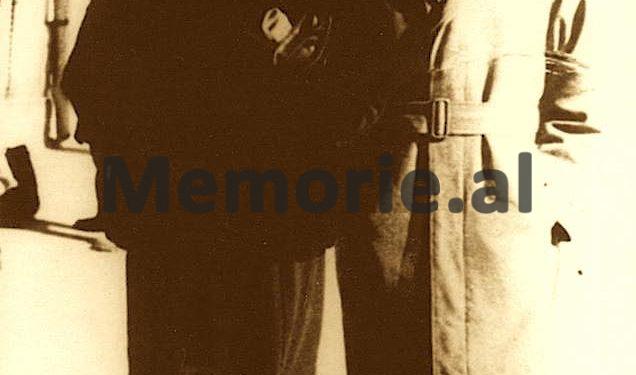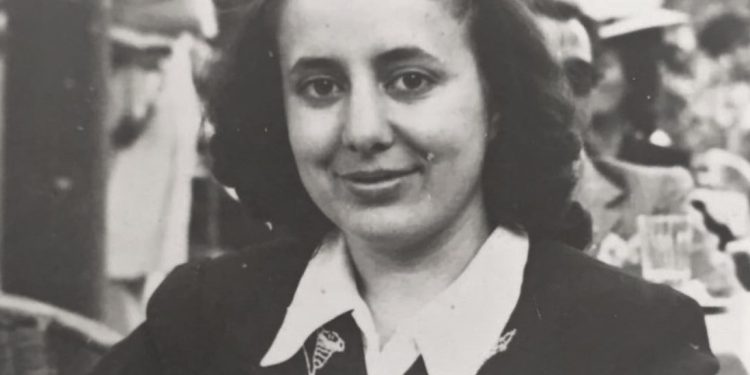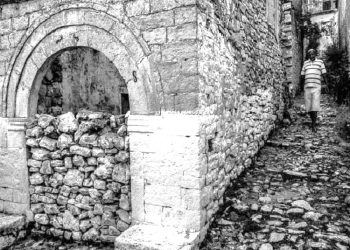From Musine Kokalari
Memorie.al / Musine Kokalari were born in Adana, Turkey in 1917, where her family settled at the time after leaving Gjirokastra, where they are from. She completed primary school in the city of Gjirokastra, while she finished high school at the “Nana Mbretneshë” Institute in Tirana in 1937. She then continued her higher studies in Italy and in 1941; she graduated in Language and Literature at the University “La Sapienza” of Rome. After graduation, she returned to Albania and in 1943, she tried to form a political formation with a Social-Democratic tendency. In 1945, he was put in charge of the opposition groups and sent a memorandum to the allied Anglo-American and French military missions accredited in Tirana, for their intervention near the communist government of Albania, in order to respect the rules for free and democratic elections. For this, on January 17, 1946, she was arrested by the State Security and on July 2 of that year, she appeared in court, being accused of being an “agent of the Anglo-Americans” and was sentenced to 20 years of political imprisonment. After her release from prison (on October 8, 1961), which she served in Tirana and Burrel, she was interned in the district of Mirdita, where she lived alone, working as a sweeper in cleaning the streets and the Rrëshen Construction Company, until the end of her life on August 13, 1983. Musine Kokalari was engaged in journalism and wrote before and during the War in the press of that time, such as sketches and stories, signing them with the literary pseudonym “Muza”. Likewise, during that period of time, she published the books: “As my old grandmother tells me” (1939); “Around the hearth” (1944) and “How life shook” (1944). After the 90s, (in 2003) it became possible to publish another book of hers, entitled “I was a flower”, which she had written since her youth.
NOTES IN THE LACK OF A DETAILED DIARY…!
The war of Tirana began. On November 12, they took my two brothers and many people in the neighborhood (fortunately, the third brother was sick with typhus), and killed the “liberation soldiers”.
On November 13, I was arrested. They kept me in a house near our neighborhood. So at dawn we crossed to “Fortuzi” Street, in anticipation of the German tank. They pierced us on “Bardhyl” Street. They bumped into the plants of a house, where many prisoners were gathered here and there. I was interrogated by Sulo Kozeli and Sotir Polena. They told me:
– “Are you a social democrat”?
– Yes, – I told them.
– “You caused division”, – they told me.
– Be a man to prove this, – I told them.
– “You have not fought a war”, – they told me.
– You didn’t let us do it, – I answered
– “And what have you done”?
– I am busy with writing. I have published books.
-“Book”,- answered Sulo Kozeli ignorantly.
– The war was fought and fought with feathers and weapons. You did it with a gun, but you’re not good at it with a feather.
I was sent back to the dungeon.
We came to “Dibra” Street. I was released.
…With two innocent murders at home, liberation found me and with the uncertainty of being saved. Thus began the tragedy of the democratic individual, under the ‘Dictatorship of the Proletariat’. Thus ended the era of renaissance…! Violence entered to exterminate the “democrat” and a cruel joy for bloodshed…!
November 1945 approached. There was talk of voting. The fate was set and the direction was determined. In Albania there was the English mission, the American mission, the French, Yugoslav and Soviet missions. Government recognition was required. The allies of the West said that we should hold democratic elections. UNRRA representatives were also in the country. The situation was complicated. The people, who had been in the Front and were not communists, leaned towards the West. Also, we democrats aspired to a Democratic Republic. Could we do something?
I decided, took the pen and compiled the note. It was signed by four zogis, four of the resistance, me and Musa Dizdari, a friend of mine, in the brain of the Social Democrat. Shaban Balla pierced one copy to the English and one copy to the Americans. I had only one occasion to speak with Officer Palmer, who supported this step, if they wanted the election to be democratic, as they claimed. But the allies did not intervene near the government. They left the matter in silence.
…On January 23, 1946, I was arrested. The first were the Zogist and resistance groups. They were arrested on January 10. Now before the investigation the question of the grade was raised; were: Nesti Kerenxhi, Siri Çarçani, Edip Çuçi, Kadri Hazbiu, etc., when my accusation was beaten. It was easy for me to defend myself; they had a hard time sustaining the accusation…!
The investigation began. They asked me about the grade…!
We made the note on behalf of three groups, allies, whom you allowed to observe that the elections were democratic. The matter was presented as a democratic coalition, where each group with the program would present its own candidates, after the elections were postponed and we would also participate,’ – I began.
– “Surprise,” said Nesti Kerenxhi, who was the head of Sigurimi. – You come from a democratic, anti-zogist family. How did you join the Monarchists?!
– I learned this lesson from you, – I answered.
…On June 2, the Special Trial began. Chairman was Frederik Nosi, prosecutor Nevzat Haznedari.
The day came to “give account” before the dock. I went to the microphone. The chairman, Frederik Nosi, asked me.
– “Do you accept the indictment”?
– Based on your political views, yes. Based on my views, no.
– “Enough with sophistry”!- screamed Frederik Nosi.
– Then it’s useless to ask me. Read the minutes, – I told him and sat down in my seat. …I thought he was going to sentence me to death.
The day came for the defense of the defendants. I did not accept a lawyer. I compiled the defense myself. Well, they didn’t know what it contained. The prosecutor accused me, that we were a block that wanted to overthrow the government. He sentenced me to 30 years. I, with the defense in hand, approached the microphone and started reading: “There are 36 defendants in this trial. Four groups. In three groups, we have only one thing in common: a note addressed to the allies to postpone the votes and as a democratic coalition, to participate in the elections. Not for the overthrow of power, but for democratic elections”.
Both the president and the prosecutor stood up saying:
– “We don’t allow you to continue the defense”.
– If you stop him, you don’t let the prisoner defend himself, I let him – I answered.
I was ordered not to continue. I went to my country. After a while officer Manoli came and stole my protection…!
In 1947, with the arrest of the deputies, I was isolated. Jonuz Mersini came again from the General Command and told me:
– “Speak”!
– You have what I did in the minutes. I have no other – I answered.
Once Kadri Hazbi came and told me:
– “You don’t speak, because you’re afraid we won’t shoot you.”
– I have no losses. I will stop suffering – I answered.
– “No, because you want not to put anyone in prison…”, he replied.
– You put them in without asking me. If you regretted not torturing me then, you have me in hand. If you want to shoot me, you still have me. No one protects me. You have distorted the accusation and act as you like.
A year of isolation, night and day in the dark. By chance I found a newspaper in the needy and found out about the differences with the Yugoslavs.
…In September 1948, I was stabbed again in prison…!
In August 1949, Halim Xhelua was the head of the branch. They sent me with Erifil (Bezhani) to Burrel prison together. It’s time for provocations. I lived there for two and a half years.
In 1952, I was assigned to the central workshop, machine sewing.
In 1957, General Xhule Çiraku and Colonel Sabri Sevrani came for inspection. I had addressed the Central Committee of the PPSh for the reconsideration of my case, but I had never received any answer. In this case, when we were asked in turn, I said what is the reason that I did not have an answer from the Central Committee, according to the rules?
– “How did you behave”? – the general asked me.
– Correct, – I said.
He was impressed. Many people went to the office to talk. They called me too. Sabri Sevrani tells me:
– “When you see something you don’t like in prison, do you turn to the directors”?
– That is not my job, – I told him, and so we fought with him and the general. The time coincided with Hungary’s counter-revolution.
They took away many men; they also took away six women, including me. The general shook his head and wanted to tell me: “This is what you did to yourself. You paid for it”! We worked on the farm for a year. Then they sent us to Shkodra prison. Beqir Balluku came there; he looked for me and recognized me.
– “As a social-democrat”? – he asked me.
– I am a man who has lost his civil rights, – I answered.
– “Otherwise you would have answered me”?
– Definitely, – I told him.
– Whom you have punished by law, it is not for you to ask.
– “Mor…, but Musine Kokalari will kill”! – said the head of the Department of Internal Affairs, Major General Hilmi Seiti, who was there.
– And who stopped you? – I told him. – You have the power in your hands.
… On October 8, 1961, I was released from prison. We changed four cars on the way, with the two policemen who accompanied me when we came to Rrëshen…! My mother also came to me, we were staying very isolated. Just one morning, that’s it with the neighbors.
…After two years, the mother died in Tirana, where she had gone for a few days. They gave me 24 hours leave. I last saw him dead…!
I was left alone…! Life in Rëshen is a tragic chapter in itself; suffering and ugliness… How many years of suffering and injustice? I have not been able to keep a detailed diary, that would be very interesting…! Memorie.al




